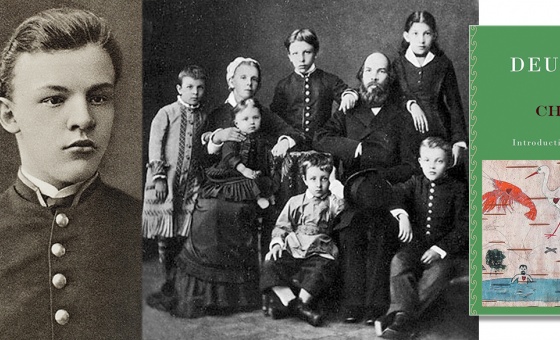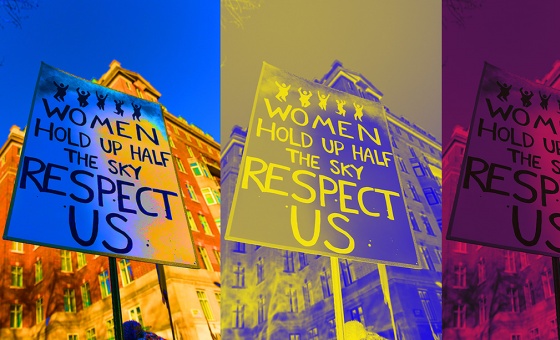This is the last article you can read this month
You can read more article this month
You can read more articles this month
Sorry your limit is up for this month
Reset on:
Please help support the Morning Star by subscribing here
FOOTBALLERS working in the women’s game in Spain continue to fight for their right to partake in the sport in a fair and equal manner following a turbulent period for women’s football in the country.
This weekend, players from Liga F, the top-flight women’s football league in Spain, will begin a two-match strike at the start of the 2023-24 season.
This latest action occurs with Spain’s World Cup win last month as a backdrop, a triumph that continues to raise the profile of numerous ongoing issues in women’s football in Spain.
The actions of Spanish Football Federation (RFEF) president Luis Rubiales towards Jenni Hermoso during the World Cup medal ceremony overshadowed the World Cup win.
It revealed to a wider audience the institutional problems within the RFEF when it comes to the attitude towards, and treatment of, women and women’s football.
The Spain women’s national team manager Jorge Vilda was finally sacked last week following years of overbearing leadership.
It was a leadership that saw 15 players boycott the national team this time last year due to this toxic culture negatively affecting their health and wellbeing.
The Rubiales incident and the sacking of Vilda have grabbed the headlines but they are the result of underlying, less publicised issues that have been ongoing for some time.
Vilda was not sacked for clapping Rubiales’s speech at a recent general assembly, as a recent article in the Times of London incorrectly stated, but for problems spanning a number of years.
This was evident last month when, even in a moment of jubilation following the final whistle of the World Cup final, the victorious Spain players did not celebrate with their manager and instead avoided him.
The strike is another example of these not being new, isolated issues in women’s football in Spain, but rather the tip of the iceberg.
Though the strike has more to do with specific workers’ rights, fair pay, and working conditions, it is all connected.
The strike action started with last night’s game between Sevilla and Tenerife and is currently planned to end next Sunday after the second round of games.
An agreement between the unions and the league seems some way off, though, so this industrial action could be extended.
The main topic of recent negotiations has been the minimum wage paid to players in the league.
The unions involved in the negotiations, FUTPRO, the AFE (Association of Spanish Footballers), Futbolistas ON, the CCOO (Workers’ Commissions) and the UGT (General Union of Workers), are requesting a €7,000 minimum wage rise.
Since 2019, the minimum wage for Liga F players has been €16,000. The players, via their unions, are requesting a minimum wage of €23,000 rising to €25,000 should the league bring in more than €8 million in revenue during the season.
Despite the unions already lowering their initial demands of a €25,000 minimum wage for this season and €30,000 for the next, an agreement from the league has not been forthcoming.
The league have so far offered a minimum wage of €20,000 rising to €23,000 if Liga F reaches that figure of €8m revenue.
Wider negotiations around employment rights and conditions in the latest collective bargaining agreement include access to similar specialists in nutrition and physiotherapy as used by men’s footballers and playing contracts that are maintained during maternity leave.
“We consider the final economic proposal of Liga F unacceptable, and the five unions continue to maintain a firm proposal regarding the minimum wage that must be applied so that the female footballers in our country have salaries commensurate with their talent,” said a joint statement from the unions.
“We are surprised and saddened by the position of the employers during the negotiations, which at all times has been one of firm immobility in the face of the proposal made by the unions.”
These are important steps to ensure players remain fairly compensated as the women’s game grows.
Liga F itself, as with many other leagues and organisations across women’s football, would no doubt like to start profiting further from the women’s game, thus increasing the exploitation of players, staff, and fans in order to line its own pockets.
The league said in a statement that “this Professional League will not give in to pressure or accept proposals that lead to the economic collapse of the competition, and, therefore, the failure of women’s professional football.”
It is a hyperbolic, alarmist statement that attempts to make the workers and their unions appear as the baddies — a technique currently seen across Establishment politics.
Strikes such as this help hold the leagues and other organisations to account. The high-profile nature of Spain’s World Cup win has given them a platform to do this in their own country and expose the inequality and disrespectful treatment of women footballers there.
Hermoso deserves great credit and support for not backing down amid what are no doubt uncomfortable levels of publicity, scrutiny, and lack of privacy following that moment involving Rubiales during the World Cup winning ceremony.
The strike shows the problems in women’s football in Spain are not limited to one moment at the World Cup or Vilda clapping Rubiales at a general assembly.
It shows that support from the players and their unions is strong on numerous issues, and Hermoso is not alone in her fight.











